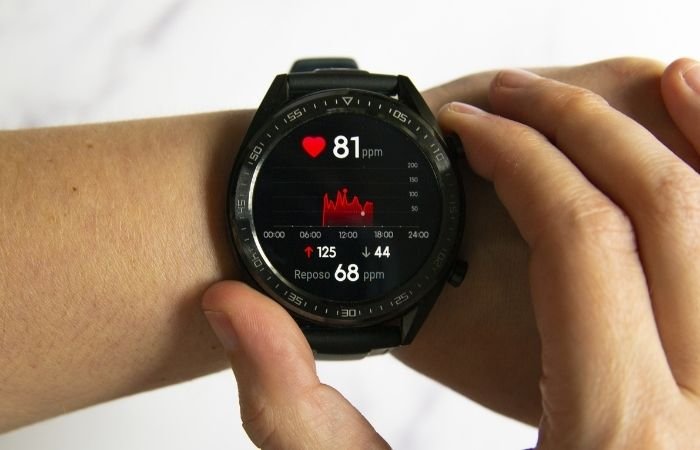Health Monitoring Devices: How Wearables Like Smartwatches Are Changing Healthcare

Imagine having a personal health assistant that tracks your heart rate, monitors your sleep, and reminds you to stay active—all strapped to your wrist. Wearable health devices, like smartwatches and fitness trackers, are not just gadgets; they are revolutionizing healthcare by providing real-time data, fostering preventive care, and empowering users to take charge of their well-being. From early disease detection to enhancing fitness routines, these innovations are shaping a healthier future.
What Are Wearable Health Devices?
Wearable health devices are electronic tools designed to monitor and track various health metrics. Devices such as smartwatches, fitness trackers, and even smart rings come equipped with sensors that measure everything from heart rate to blood oxygen levels. These devices often sync with smartphones, allowing users to access and analyze their health data conveniently.
How Are Wearables Transforming Healthcare?
- Real-Time Health Monitoring
- Wearables provide continuous tracking of vital signs, enabling early detection of irregularities. For instance, they can alert users to abnormal heart rates or sudden drops in oxygen levels, prompting timely medical intervention.
- Did you know? Research shows that wearable devices can detect conditions like atrial fibrillation, a common but serious heart rhythm disorder, even before symptoms appear.
- Encouraging Preventive Care
- By monitoring metrics like daily steps, calorie burn, and sleep patterns, wearables encourage healthier lifestyle choices. These insights empower users to take preventive actions before small issues turn into chronic conditions.
- Setting daily fitness goals or receiving gentle reminders to hydrate or move more often fosters accountability.
- Supporting Chronic Disease Management
- Wearables play a crucial role in managing chronic conditions like diabetes or hypertension. Devices with glucose monitoring or blood pressure tracking help users maintain better control over their health.
- Did you know? Some smartwatches now offer ECG (electrocardiogram) capabilities, helping users track heart health from the comfort of their homes.
- Improving Patient-Doctor Communication
- Wearable devices create a bridge between patients and healthcare providers by offering detailed health data. Doctors can use this data to make more informed diagnoses and tailor treatment plans accordingly.
Popular Features of Health Monitoring Devices
- Heart Rate Monitoring: Tracks resting heart rate and heart rate during exercise, helping gauge cardiovascular health.
- Sleep Tracking: Measures sleep duration and quality, offering insights into sleep hygiene.
- Step and Activity Tracking: Encourages users to stay active by tracking daily movement and exercise goals.
- Blood Oxygen Monitoring (SpO2): Helps assess oxygen levels in the blood, especially useful during respiratory illnesses.
- Calorie Burn Estimation: Aids in managing weight and fitness goals.
- Stress Management Tools: Measures stress levels through heart rate variability and offers relaxation exercises.
Advantages of Wearable Health Devices
- Accessibility: Wearables bring healthcare into the hands of users, making it easier to stay informed about personal health.
- Convenience: Compact and portable, these devices seamlessly integrate into daily life.
- Motivation: Features like fitness challenges, reminders, and goal-setting encourage consistent effort toward better health.
- Data Insights: Detailed reports help users and doctors identify patterns and areas of concern.
- Remote Monitoring: For patients with chronic illnesses, wearables allow doctors to monitor health remotely, reducing the need for frequent visits.
Challenges to Consider
- Data Privacy and Security: Personal health data collected by wearables can be vulnerable to breaches if not adequately protected.
- Accuracy Issues: Although improving, wearable devices may not always provide medical-grade accuracy for all metrics.
- Cost: High-end devices with advanced features can be expensive, making them less accessible to some users.
Future of Wearable Health Technology
The future of wearables lies in more advanced and precise health monitoring. Emerging trends include:
- Integration with AI: Artificial intelligence will enhance wearables by analyzing large volumes of data to predict health risks.
- Personalized Health Recommendations: Devices may soon provide tailored health advice based on individual data and genetic information.
- Advanced Sensors: Innovations like non-invasive glucose monitors and hydration tracking are on the horizon.
- Telemedicine Integration: Wearables will play a key role in virtual healthcare, offering real-time data to doctors during online consultations.
Tips for Choosing the Right Wearable
- Identify Your Needs: Choose a device with features aligned to your goals, such as fitness tracking, sleep monitoring, or chronic disease management.
- Check Compatibility: Ensure the wearable syncs with your smartphone or other devices.
- Battery Life: Look for devices with longer battery life to avoid frequent charging.
- Reputation and Reviews: Opt for brands known for accuracy, reliability, and data security.
- Budget: Compare features to find the best device within your budget.
Did You Know?
- Wearables equipped with sleep tracking can provide insights into REM and deep sleep cycles, crucial for mental and physical recovery.
- Over 80% of wearable users report feeling more motivated to achieve fitness goals due to real-time progress tracking.
Conclusion: Empowering Health Through Technology
Health monitoring devices are more than a trend; they represent a shift toward proactive and personalized healthcare. By providing real-time insights and fostering healthier habits, wearables empower individuals to take control of their well-being. Whether tracking fitness, managing a chronic condition, or simply staying informed, these devices are revolutionizing how people approach their health. As technology continues to evolve, wearables will undoubtedly become an indispensable part of everyday healthcare.
By embracing wearable health devices, individuals can take a significant step toward a healthier, more informed, and empowered lifestyle.




